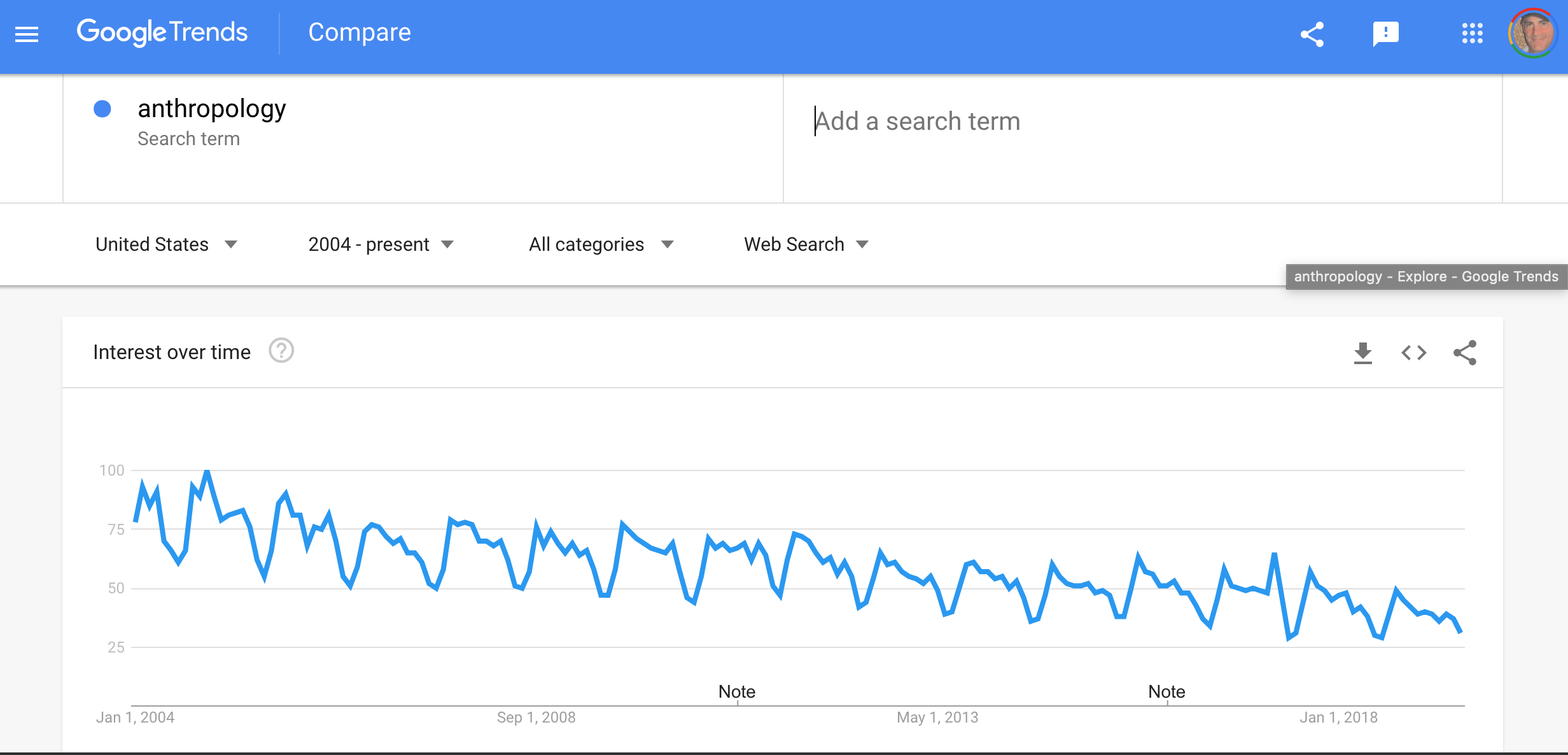
A couple of weeks ago, I participated in the 2019 Global Business Anthropology Summit held on the New York City campus of Fordham University. Melissa Fisher organized the panel I was on, as were Caitlin M Zaloom, Rachel Laryea, Gillian Tett, and Christina Wasson. (Thanks to Aida Ford, Timothy Malefyt, and Robert Morais for organizing the Summit and to Ed Liebow for his inspirational opening remarks.)
Melissa asked us to come with brief remarks prepared. Naturally I forgot and was obliged to scribble notes as the microphone began to work its way across the stage towards me. (Luckily I was sitting at the far end.)
After the event, Melissa asked us for “a very short summary” of our remarks and naturally I got this wrong too.
Here’s is my not-very-summary summary of my remarks at the event.
1. one of the objectives of business anthropology is to fund our anthropology. We need to talk more about a model that is both academic and consulting. Too often the pressure of business, or the reeducation pressed upon us by business practice, means we cease to be practicing anthropologists. Our anthropology falls silent. The consulting carries on.
2. I am sometimes surprised to see that even when we do continue to write books and articles, we tend to focus on a) the method of ethnography, b) on the trials and tribulations of the business life or c) particular business problems. For my part, I would prefer to see us do more work on the anthropology of American culture. Because if we don’t, who will?
3. while I’m in a censorious mood, can I suggest that too often I hear anthropologists in business scolding their clients (or dissing them behind their backs.) The presumption here is that we have intellectual, moral, political and or epistemological virtues that they do not. Apparently, we know better and that we are better. I think this is provincialism. We have failed to see just how little we know. We have failed to see how big the world is. What’s worse, we have broken the first rule of anthropology and this is that the respondent is the first arbiter of knowledge. We don’t know more. We aren’t better. Let’s take that for granted in the way that virtually all the anthropologists of the 20th century did.
4. My model of business anthropology has been to divide my life into two halves: consulting on the one side, and my own anthropology on the other. For years and years, clients didn’t know or care about the anthropology side, even when I would dare suggest how useful they might find it. But this too has changed. Now they are quite keenly interested in hearing about what I am doing as an anthropologist. This is because they are obliged by an innovative economy and a dynamic, disrupted culture to cast the “curiosity net” much more broadly than before. I think they think, ‘maybe this anthropologist, despite all appearances and his dubious fashion choices, does have a clue.’ And in any case, most of my clients are actually quite, if not fully, alert to the intellectual, moral, political and or epistemological issues of the day.
5. here are a couple of the particular things clients now ask of anthropology.
5.1 the chance to see opportunity that’s invisible to them cannot see (“blue oceans” in the parlance).
5.2 the chance to see the danger or disruption that’s invisible to them (“black swans” in the parlance).
5.3 the chance to dig down and discover assumptions (Polanyi’s “tacit knowledge”) they did not know they were positing.
5.4 the chance to see how new developments might “break” (to use a golf metaphor prized by the C suite or a snookers one that’s not). Anthropologists are always looking broadly. And we are always looking systematically. And we have a clue about self, home, family, community, networks, and work are variously constituted. So we do have the ability to see how small changes may or may not become big ones.
6. Every anthropologist who works in the business world understand that he or she is obliged to rework theory and method almost continuously. (That is, not insignificantly, one of the things that gives the business anthropologist a leg up on his or her academic contemporaries. We are tested in ways they are not.) More specifically, I think that if we are to keep up the idea that we care about a breadth of knowledge (and surely this is part of our stock in trade, the very thing that we bring to the party, the thing we nurtured through the winter of positivism that arrived after World War II), we must acknowledge that contemporary culture now represents an almost limitless water front. There is always something “breaking out” virtually everywhere we look. Indeed we may have passed a methodological threshold and we are now obliged to say, all together now, “I can no longer follow all of the things in play or see the larger whole.” “Whole” is a little ambitious, isn’t it. We can no longer see a larger constellation. And this is the moment I think we must embrace that new quantitative instruments with which to detect monitor and measure the cultural changes taking place around us. Not as a replacement of the other things we do, but as a companion. And let’s remember that “seeing the whole” is one of the things anthropologist bring to the party.